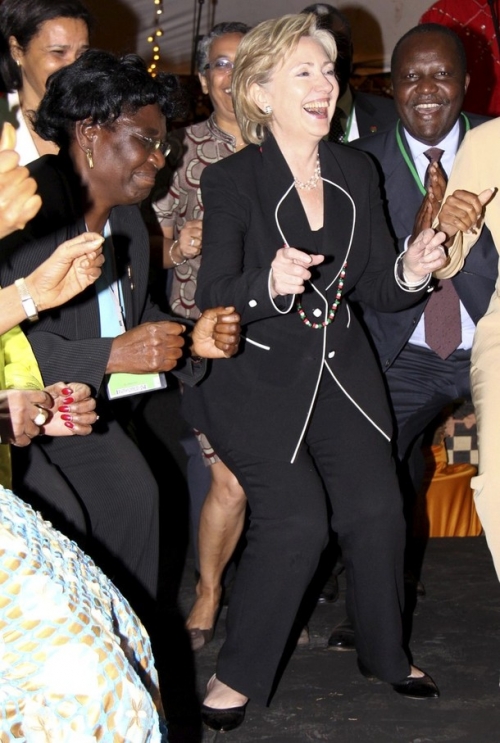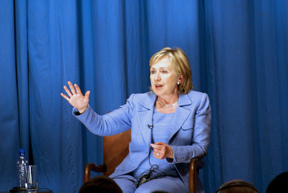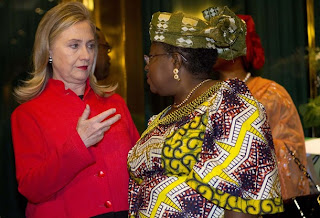For Hillary Clinton fans and loyalists, there is nothing better than
having the last smirk. The media turned a blind eye in August 2009,
when then Secretary of State Clinton toured Africa rather extensively,
except for two occasions.
One was a night out in Nairobi when, after a rather taxing official day when she spoke at the
AGOA Forum,
she hit the dance floor prompting her husband to remark in a TV
interview that he wondered how he could get her to come home to New
York and do that. The second was during a
town hall with Congolese students when she went all New York on a student who asked her what President Clinton thought of something.
Few news sources, however, bothered to cover
a university town hall in Nairobi the
day after our dancing queen demonstrated her ability to get down. On
stage with Fareed Zakaria and Dr. Sally Kosgey, Kenyan minister for
education, science, and technology, at the University of Nairobi,
Secretary Clinton said this.
I said in my speech
yesterday before the AGOA Forum, quoting one of our famous judges, that
sunlight is the best disinfectant. And I think there’s an opportunity
for young people and for civil society to use modern technology to run
corruption watches and reporting. There are some examples of this
beginning around the world where you basically surface what is going on.
And it goes on at all levels of society, and frankly, look, it goes on
in our society. We have to go after it all the time ourselves. You have
seen people get arrested in America, whether they’re governors or
they’re Congress members, if there is a belief that they have committed
an act of corruption
And I think there ought to be a way to use
interactive media, especially the internet, obviously, and some of the
new vehicles like Twitter, et cetera, to report in real time allegations
of corruption.
Although this message was not widely
seen here, the Kenyan students heard her loud and clear and took her
words very seriously as
The Daily Nation Reports.
By EVERLINE OKEWO eokewo@ke.nationmedia.com
Posted Monday, April 22 2013 at 01:00
A
group of 15 graduates have localised a global whistleblowing website to
report indecent activities by university lecturers and administrative
personnel.
Notinmycountry.org,
an Internet site developed by concerned individuals, among them
professionals and students who prefer to remain anonymous, is now in
Kenya and university students are using it to expose malpractices in
their institutions, including corruption.
SNIP
The
founders say that the creation of the local chapter of
notinmycountry.org was inspired by a statement made by former US
secretary of state Hillary Clinton when she visited Kenya in 2009.
So
while we Hillary followers were somewhat frustrated at the time with
the paltry coverage this trip received, it is heartening to see young
people turn her words into actions that address problems they have
identified in their environment. We hope she is aware of the difference
she has made in the lives of these students.


 Bill Clinton
Bill Clinton





















































